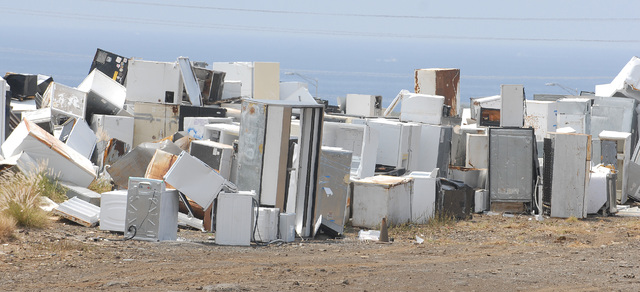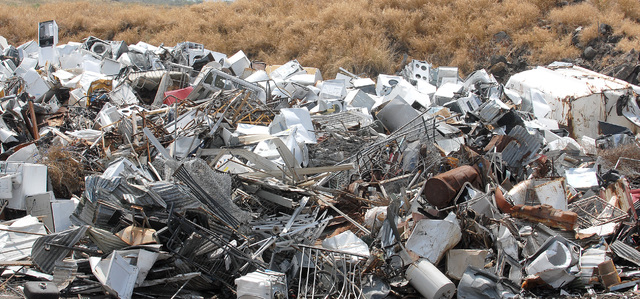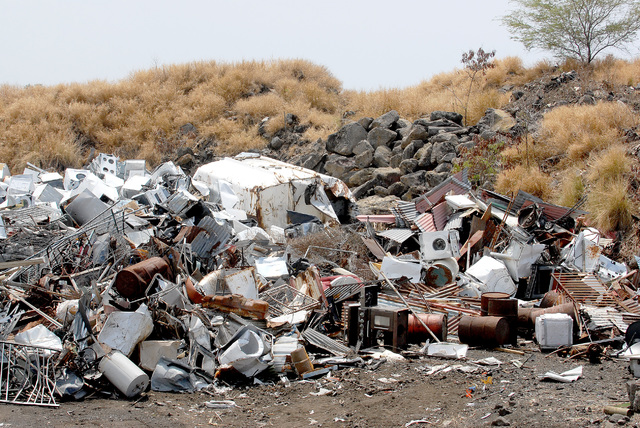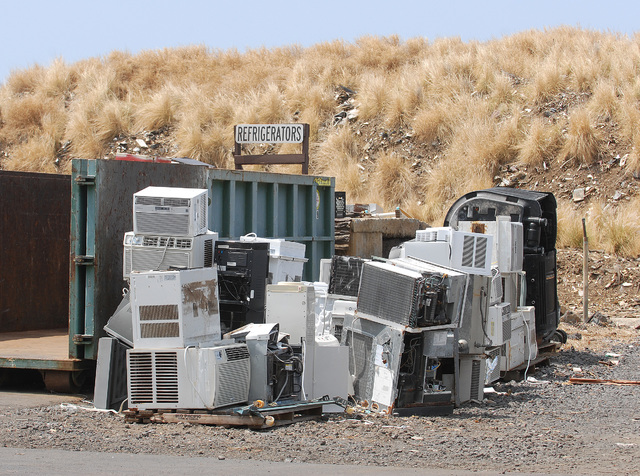The bad news is, it’s going to cost at least $6 million to clean up the Kealakehe scrap yard. ADVERTISING The bad news is, it’s going to cost at least $6 million to clean up the Kealakehe scrap yard. The
The bad news is, it’s going to cost at least $6 million to clean up the Kealakehe scrap yard.
The good news, Hawaii County can borrow the money at a 1 percent interest rate.
The County Council is scheduled to put the final stamp of approval on a bond issue to finance the project, which will then be paid from the low-interest state revolving fund loan program. The votes for the bond issue, Bill 157, and the appropriation, Bill 139, are scheduled for 1 p.m. today at the West Hawaii Civic Center in Kailua-Kona.
The site, which was closed by the county in 2013, is contaminated with lead, said county Solid Waste Division Chief Greg Goodale. He said closing procedures had to be approved by the state Department of Health as part of the county’s permit.
“It’s a pretty major cleanup operation to remediate this site,” Goodale said. “This project has been a long time coming.”
The lead-contaminated soil will be trucked off the site and deposited in the West Hawaii landfill at Puuanahulu, he said. It’s not known how long the process will take.
After that, the county has to cap the site and get a final clearance from the Department of Health, Goodale said.
Decreasing values of old cars and scrap metal have dampened private companies’ enthusiasm for picking up the slack in the county operations. Where before companies would pay for the abandoned vehicles, now it’s more likely the county will have to pay to get rid of them.
County Council members were concerned that the county could continue to incur costly cleanup bills if it stayed in the business of processing old cars, white goods and other scrap metal.
“This number bothers me, just the amount,” said Puna Councilman Dan Paleka.
Kohala Councilwoman Margaret Wille had another concern. People in West Hawaii were having a hard time finding out where to take their old vehicles. The police department is charged with initiating the process for removing abandoned vehicles from the roadsides.
“People are running into a roadblock,” Wille said.
South Kona/Ka‘u Councilwoman Maile David had counted a half dozen or so abandoned cars along Mamalahoa Highway in her district alone, she had told fellow council members recently. The cars are of concern because they could harbor mosquito larva and contribute to the dengue fever outbreak the county is currently battling.
Goodale assured council members the county has solicited bids for its abandoned vehicle and scrap metal program and plans to sign a contract “within a month” to privatize the program.
“That was the whole reason why we closed them,” Goodale said, referring to the Kealakehe and Hilo scrap metal sites. “Essentially for the county to get out of the business of running a scrap metal and vehicle processing facility.”






